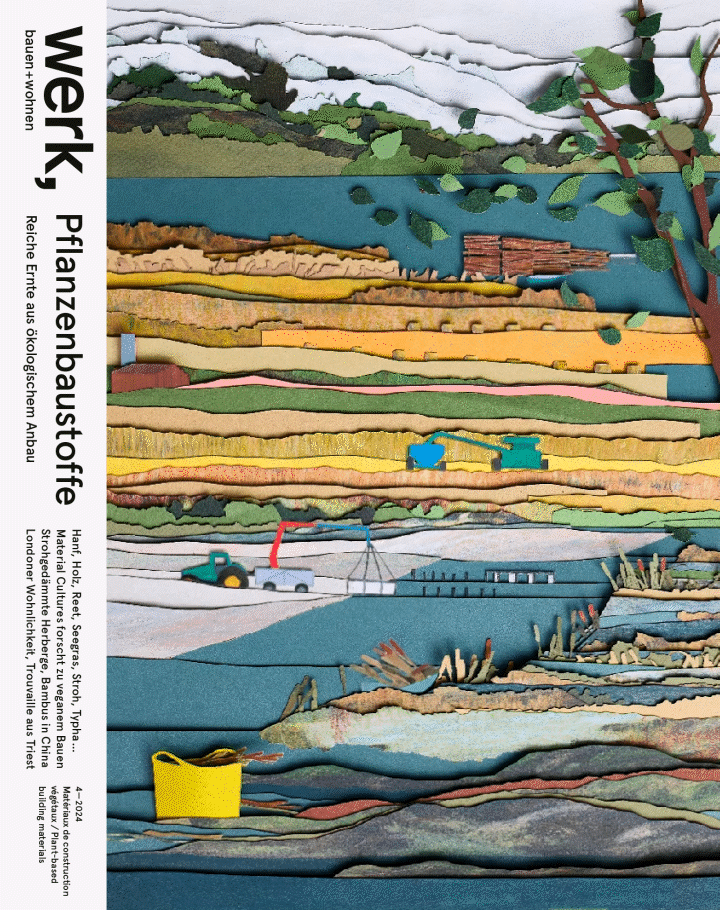werk, bauen + wohnen 4–2024

Vegan Building
Industrial materials that require a lot of fossil energy to produce are the meat of the building industry: CO₂ guzzlers and bad for the environment. In the search for alternatives, we take a look in this issue at plant-based materials: timber that is used in construction is certainly the best known such material. But, as the current need for wood cannot be met by native forests alone, the transport routes must always be included in making a comprehensive CO₂ balance. The issue here is to keep in mind in which regions the plant-based materials are grown. Where do the plants from which buildings can be erected grow? What is already on offer on the market?
At Swissbau this year, apart from timber building once more there were hardly any plant-based materials to be found. Here the firm Haga Naturbaustoffe formed a laudable exception to the rule. Products made of straw, hemp, flax, or seaweed show that there are already unproblematic substitutes for certain building materials. Today it is possible to use plant-based materials as insulation in walls or wall claddings in frame buildings with absolutely no reduction in quality. When will more such materials be used? And how can such products be made from residues or waste in order to extend the value chain, in the sense suggested by the slogan “From Nose to Tail”?
This issue shows: some seed has already been sown, and growth is already noticeable. Like with wood these building materials also captivate through the aesthetic and olfactory experience they offer. At the 2023 Architecture Biennale in Venice walls made of mycelium were shown in the Belgian pavilion. A beautiful presentation showed visitors all imaginable facets of this natural construction material—which is even attributed with self-healing powers. Nevertheless: mycelium is a fungus and is regarded as ahermaphrodite somewhere between plants and animals. As strict vegans we have therefore not included it in this issue. We await with interest the first bigger project using this new material. — Roland Züger, Jasmin Kunst, Lucia Gratz